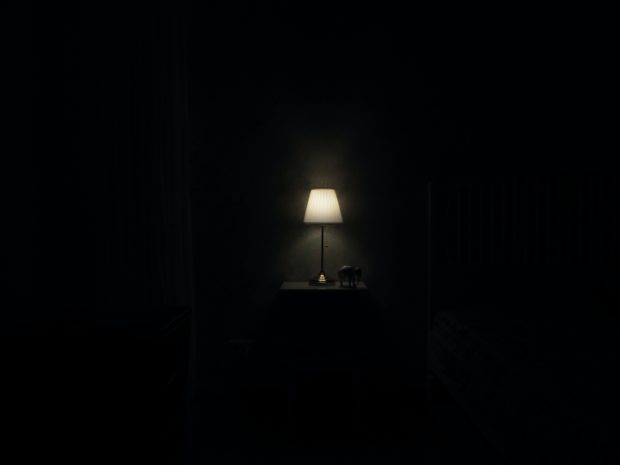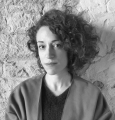You have no items in your cart. Want to get some nice things?
Go shopping
Aunt Kelly always said the lamp in her living room, the one with the drooping shade, was a terrorist. Its chipped Murano glass, a scar. Its cord, a whip. Its bulb, a killing machine.
It transmitted encrypted messages through twisty wires behind walls all night, secret codes to toasters with anger management issues in nearby apartments, to antenna-like palm trees, to the whole island. A lamp devising the perfect doomsday plan, but ‘truly miserable’ inside, and ‘bullied ruthlessly.’ ‘Nobody wanted lamps with dark shades after 9/11,’ Aunt Kelly whispered, as she sipped cold chamomile tea in china cups, clarifying that the lamp’s messages were short but to the point – Brothers and sisters, Black Shade, Black Shade calling. That it used weird nicknames and different languages to cause a distraction, that it was a lone wolf, a mastermind, panning its shade like a radar, feasting on clues and transmissions from nearby stations.
Aunt Kelly was such a good storyteller. Grown-ups called it schizophrenia, but I knew mum would never leave me alone with someone who heard voices, just to fuck a boyfriend. And anyway, as mum said throughout my whole childhood, Aunt Kelly was too lonely to lose her mind.
Scuba diving in her puffy armchair, with her bony arms swinging above the floor, Aunt Kelly coughed, ‘I’m telling you kid, all this is true,’ and insisted that the lamp was suffering from what was called an Electra Complex. ‘She’s in love with her father, a five-thousand-euro chandelier.’
Retreating into my comic book, its edges slipping from my constantly sweaty fingers, I wondered whether lamps could have fathers, and be in love with them, and talk like spies or terrorists, beep, beep, light and darkness calling, darkness, darkness calling, beep, beep, whether this whole thing made any sense, like my parents’ divorce, like seeing a smiling stranger in the street and wishing he was my father.
When a fire broke out in a neighbouring building, Aunt Kelly rushed to the balcony, in her underwear, pulling me along as if I were a water hose, screaming ‘She did it! She did it! I fucking knew it!’ She then turned the lamp into a ‘zze’ and started calling her Electra. ‘Zze just needs to gather more voltage. Zzzer followers will cheer. All cables will transmit zzzzer act of sacrifice!’
Electra would eventually burn everything to ashes. Corrupted bankers, sunbeds, plastic bags, wigs and ‘extremely rude, heartless’ young men.
Aunt Kelly would then cough and cough, cough herself out of this world, and whisper with sticky, smelly lips, ‘Nobody stays sane after all this voltage.’ Her exhausted, bald head gleaming in front of Electra’s light, ‘like a lighthouse in the dark.’
by Maria A. Ioannou

About Maria A. Ioannou
Maria A. Ioannou is a writer based in Cyprus. Her publications include two short fiction collections and a fairytale (Emerging Writer State Prize 2012). Her short fiction ‘Pillars’ was a Best Small Fictions nominee and her work has appeared in The Cabinet of Heed, The Hong Kong Review, SAND, Asymptote, Tiny Molecules, and elsewhere. She holds a PhD in Creative Writing and she is currently an ECR Visiting Research Fellow at the University of Winchester.




